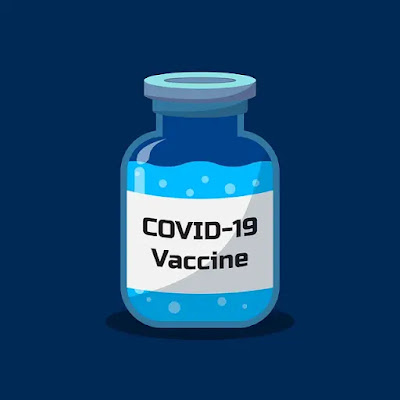The flu shot is one of the best ways to protect yourself against getting the flu, which can leave you feeling miserable and even lead to serious complications like pneumonia or hospitalization. The influenza virus is constantly evolving and changing, though, so it's necessary to get a new vaccine every year. Protecting yourself from the flu doesn't have to be overwhelming or confusing, though, as long as you know what steps you need to take and leading doctors' recommendations. This guide will explain everything you need to know about getting a flu vaccine this year and what choices are available for your specific needs.
What is the flu?
Influenza is a respiratory illness caused by a virus that spreads from person to person. It is also known as 'the flu'.
The flu is a contagious infection of the nose, throat and lungs. The most common symptoms are fever, sore throat, muscle aches, headaches and fatigue. Other symptoms can include chills/sweats, coughs and sneezing. Severe illness can lead to hospitalisation and death in some cases (particularly among young children or older people).
How does the influenza vaccine work?
The flu vaccine works by helping you build up immunity to the virus. It is a two-step process:
First, the vaccine triggers your body's immune system to produce antibodies that help fight off influenza A and B viruses.
Second, once you have been vaccinated and have developed protective antibodies, if you are exposed to a flu virus later in life (either naturally or through contact with an infected person), your body can quickly recognize it and respond accordingly to prevent infection.
How effective is the flu vaccine?
The most important thing to understand about flu vaccines is that they are not 100% effective. The CDC estimates that the flu vaccine's effectiveness varies from 40-60% among healthy adults, but this number can be even lower in older adults and younger children.
If you've previously been vaccinated for influenza, it's likely that you will have some protection against the strains contained in your vaccine (though not necessarily all of them). But if the components of your vaccine haven't changed since last year, or if you haven't gotten a shot before then, don't expect complete protection against influenza this season.
Also keep in mind that getting vaccinated does not guarantee perfect health: some people may get sick despite being vaccinated—though this is rarer than if they hadn't received any immunization at all. And while getting immunized reduces your risk of infection considerably and makes recovering easier should you become ill with influenza symptoms later on during the season, it isn't foolproof either! There are many things outside our control when it comes to preventing illness such as what we eat/drink/sneeze onto others (and vice versa), so don’t forget about other ways we can protect ourselves from contracting viruses like handwashing practices or avoiding crowded spaces where germs spread quickly!
Who should and shouldn't get the flu shot?
Who should get the flu shot?
All people 6 months and older are recommended to get the flu vaccine. People at high risk of complications from the flu should get their flu vaccine first, then other adults and children who want to protect themselves from getting sick with influenza.
Who shouldn't get a flu vaccine?
People with allergies to eggs can’t receive any vaccines that are prepared using eggs – these include measles-mumps-rubella (MMR) and varicella (chickenpox) vaccines. People with egg allergies also may have a reaction after being vaccinated against influenza with an egg-based inactivated injectable vaccine, such as FluBlok or Afluria. The live attenuated nasal spray version of influenza vaccine is not recommended for anyone with severe asthma or respiratory problems that require medical care, such as chronic obstructive pulmonary disease (COPD), cystic fibrosis or long-term steroid use; these conditions raise your risk for complications from seasonal flu virus infection that could be severe enough to require hospitalization
How can I reduce my risk of getting the flu, if I can't get vaccinated?
You can reduce your risk of getting the flu by:
Washing your hands often with soap and water.
Avoiding touching your eyes, nose and mouth with unwashed hands.
Covering your coughs and sneezes with a tissue or elbow the inner aspect of your arm.
Cleaning surfaces that may be contaminated with flu viruses - for example, frequent hand washing in the home is a good way to prevent spread of germs from one family member to another.
Why do I need a flu vaccine every year?
You need a flu vaccine every year because the viruses change. They are always changing, and they can change from the moment one season ends to the start of another. The flu virus is constantly mutating, so what was effective against it last year may not work this year. That's why you should get vaccinated each fall, before winter starts in your area.
It's not just that the virus changes over time; it's also that it often changes from one year to another. In other words, if you get sick with a certain strain of influenza this winter but then don't get sick again for several years (or decades), you could still catch a new strain next winter—and that new strain might be less effective against your body than it would've been had you been vaccinated again during those intervening years.
What is the Flu vaccine benefits ?
The flu vaccine can reduce the risk of serious illness caused by influenza, as well as provide protection against other viruses that cause similar symptoms.
For everyone over 6 months of age: The flu vaccine is safe, effective and strongly recommended for everyone aged 6 months and older. Studies have shown that the flu vaccine reduces the risk of getting sick with the flu and getting hospitalized due to it. It also helps protect against other respiratory viruses such as the common cold or seasonal allergies, which may result in missed work and school days due to illness.
For persons who are at high risk of developing serious complications from influenza: The CDC recommends that all people 65 years and older should get vaccinated annually because they are at high risk for serious complications from influenza including hospitalization or death (3). Approximately 90% (4) live in nursing homes or other long-term care facilities where outbreaks can be severe enough that even healthy residents need vaccination (5). Vaccination has been found effective in reducing morbidity among both pregnant women and their infants during influenza season; however, vaccination coverage within this group remains low (<50%).
What is an ‘enhanced’ influenza vaccine?
An enhanced influenza vaccine (EIV) is a new flu vaccine that has been approved for use in the United States. It contains a new component that’s been shown to improve the effectiveness of the flu vaccine, especially in people 65 and older. The FDA approved this vaccine on November 30th, 2018, so it can now be used as an alternative to standard vaccines against influenza.
The reason behind this change is because previous studies have found that certain components of our immune system decline with age—and those changes could make an older person more susceptible to serious illness when they get sick with influenza.
Does the flu vaccine protect against COVID-19?
The flu vaccine does not protect against CVID-19
You've heard it, you've read it and you've probably said it: "The flu vaccine protects you against the flu." But did you know that's only true for certain strains of the influenza virus? In other words, if someone were to come up to you with a needle and say they were going to inject your arm with a strain of the influenza virus that couldn't make its way into your bloodstream and cause severe health problems (like pneumonia), then yes—the flu vaccine would indeed protect you from this specific strain. However, if someone were to come up to you with a needle and say they were going to inject your arm with another strain of the influenza virus known as COVID-19 (which can potentially cause severe health problems), then no—the flu vaccine will not prevent or treat those symptoms.
It's important for people who have received their annual dose of immunization over the past few decades not only because viruses mutate but also because there are many different strains out there. For example: In Australia alone there have been eight different variants identified since 2004 alone!
Can I get the flu vaccine and COVID-19 vaccine at the same time?
Can I get the flu vaccine and COVID-19 vaccine at the same time?
No, you should not get the flu vaccine and COVID-19 vaccine at the same time. Flu vaccines are not recommended for pregnant women or people with egg allergy. A person who has received a flu shot in 2019 should avoid getting either of these vaccines until at least two weeks after their first dose of the flu vaccine.
Should I get a new flu shot every year?
The CDC recommends everyone over 6 months old who doesn't have an allergy to eggs or any other ingredient in an influenza vaccination should get one every year as long as it's recommended by your doctor (and you're healthy enough to receive one). You may need more than one injection over a few months, depending on your age and health conditions such as heart disease or diabetes that could affect how well your body responds to getting vaccinated with live virus vaccines like this one."
flu vaccination side effects
Side effects can happen after any vaccine.
They're usually mild and go away on their own in a few days, but talk to your doctor if you have any severe side effects or signs of an allergic reaction:
Fever
Redness or swelling at the injection site (where you got the shot)
Sore throat, runny nose or other cold symptoms
These are not all of the side effects that may occur.
Flu vaccine for babies
The flu vaccine is available in two forms: inactivated and live attenuated. Inactivated vaccines are made from killed virus and cannot cause the flu, but they require 2 doses to be effective. Live attenuated vaccines are made from weakened viruses that replicate in your body and prime your immune system to fight off the real thing.
For infants younger than 6 months of age, it’s too soon to get vaccinated because their immune systems aren’t yet fully developed.
Children 6 months through 8 years old need one dose of vaccine at this time if they have never been vaccinated before or if it has been more than 6 months since their last dose (the vaccine lasts 2 years). If your child was vaccinated last year, they do not need another dose as long as they got both recommended doses on time—and you can even skip this year’s shot if you plan to get it again next year when school starts up again!
Adults 19 years of age and older should get an annual shot unless you already had two doses within the past five years or three doses within the past 10 years (if there was a bad flu season). You should also talk with your doctor about getting vaccinated if you are pregnant because pregnant women over six months pregnant should receive one dose of vaccine instead of two.)
flu vaccination cost
Flu vaccine cost
The flu vaccine costs between $20 and $50 in the United States and Canada. Prices for the flu vaccine can vary depending on where you live, so it's important to check with your local pharmacy or doctor when booking an appointment for that year's injection. In Australia, a flu shot typically costs between $25 and $60.
Getting a free flu jab
If you are aged 65 or over, you are eligible for a free flu jab. The offer is available from all pharmacies, health centres and NHS hospitals. You can also get a free flu jab from some local authority health services.
The flu jab is a good way to protect yourself from the flu. It can help to prevent the flu from causing any serious health problems. The flu jab is usually effective in preventing the flu from causing any serious health problems. However, the flu jab is not 100% effective. So, it is important to get the flu jab every year.
The flu jab is usually effective in preventing the flu from causing any serious health.
Delayed reaction to flu jab
Side effects of the flu jab
Influenza vaccine schedule
Flu Vaccination Linked to 40% Lower Risk of Alzheimer’s Disease
Seasonal influenza vaccination strategies
Reducing overall influenza transmission
Conclusion
The flu vaccine is a safe, effective way to prevent the flu, especially for the most vulnerable among us. Though it doesn’t guarantee that you won’t get the flu, if you do get sick with the virus after being vaccinated, your symptoms will likely be milder. You still need an annual flu shot, even if you got one last year. And while there are some people who shouldn’t get vaccinated (mainly those who are allergic to eggs), others can receive special “enhanced” shots designed specifically for them. Given how common and dangerous influenza can be—and given how much extra pressure our healthcare system is under right now due to COVID-19—getting a flu shot is one of the best things you can do this year to keep yourself and others healthy.




